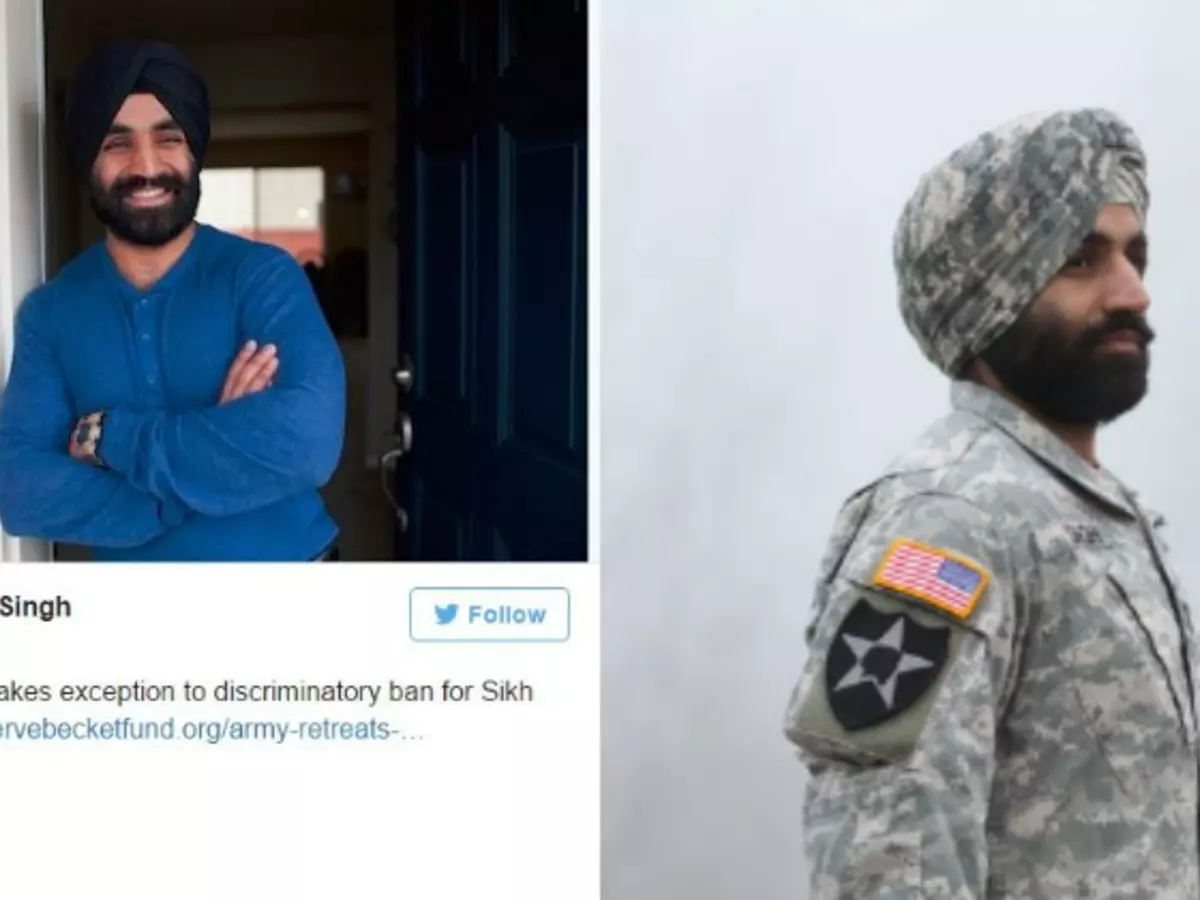Capt Simratpal Singh Becomes The First Sikh Officer In The US Army To Serve With A Turban And A Beard
Sikh army captain Simratpal Singh who had decided to sue the United States military for discrimination in March has won the case. He can continue wearing a turban and beard while being in duty. The Army intends to gather information to develop uniform standards for religious accommodations.

A Sikh army captain, Simratpal Singh, who had decided to sue the United States military for discrimination in March has won the case. He can continue wearing a turban and beard while being in duty.
Victory! US Army makes exception to discriminatory ban for Sikh Officer. #LetSikhsServehttps://t.co/Olcjsh8KnK pic.twitter.com/E59wOAUmHw
¡ª Simran Jeet Singh (@SikhProf) April 1, 2016
The U.S. Army disclosed its decision on Thursday and granted Captain Simratpal Singh religious accommodation to their rules against facial hair and head wear. They further added that the Army intends to gather information to develop uniform standards for religious accommodations.
'My military service continues to fulfill a lifelong dream,' Singh, a West Point graduate who earned a Bronze Star in Afghanistan, said in a press release. 'My faith, like many of the soldiers I work with, is an integral part of who I am. I am thankful that I no longer have to make the choice between faith and service to our nation.'
After years of cutting his hair, and shaving his beard, Singh was finally allowed a temporary accommodation in December. Assistant Army Secretary Debra Wada had ordered tests in March to figure out whether Singh could safely wear a helmet and gas mask with his turban, uncut hair and a beard.

Sikh coalition
But, the good news is, that after Thursday¡¯s decision by the Army, Singh no longer needs to reapply for the accommodation.
Simran Jeet, the senior religion follow for Sikh Coalition said, ¡®In a political context where minorities are being marginalized and attacked routinely, it is critical that our nation¡¯s largest institutions and employers ¡ª like the U.S. military ¡ª show the country that America embraces diversity.¡¯
He further suggested that, this decision is just an initial step toward ending the discriminatory policies related to religious faith of its serving members. .
In 2014, the U.S. military started giving greater freedom to wear turbans, head scarfs, yarmulkes and other religious clothing with their uniforms to individual troops. But, according to a spokesman for the Sikh Coalition,the religious accommodation needed to be approved each time a service member was assigned new or would default to the discretion of their commanders.
Just two day¡¯s before the Army released its decision on Singh¡¯s case, three other Sikh soldiers had filed a similar lawsuit demanding accommodations from the Army. And Singh¡¯s victory came as a pleasant surprise and gave hope to the others.
